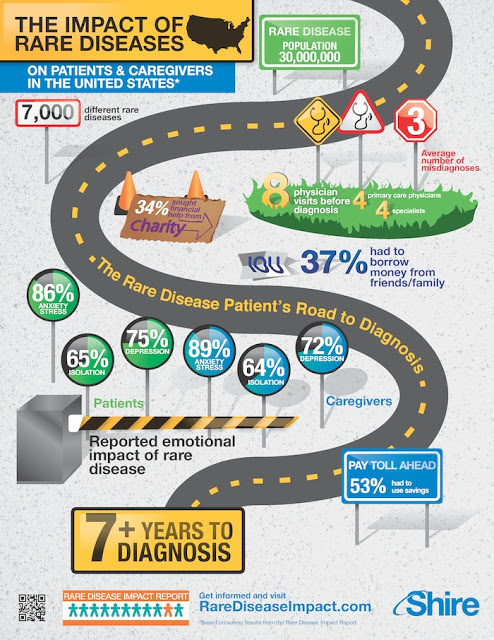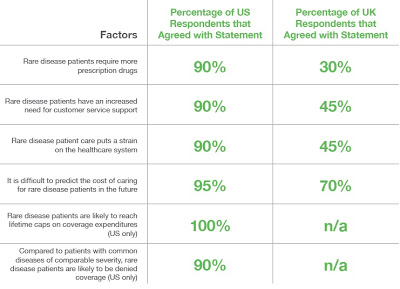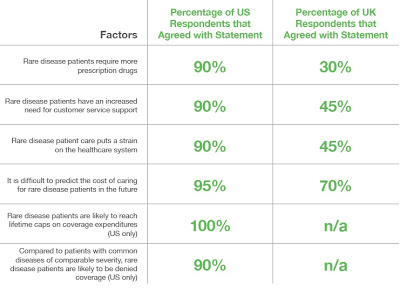An interesting Shire Pharmaceutical survey compares the health, psycho-social, and economic impact of rare diseases on patient and medical communities in the United States (US) and United Kingdom (UK). According to patients surveyed, it takes on average 7.6 years in the US for a patient with a rare disease to receive a proper diagnosis, whereas it takes 5.6 years in the UK.
This is interesting because the US pharma industry claims that single payer systems, which drive drug prices down, have longer wait times for essential medical care.
Here are a couple of data tables from the report (find it here) that highlight other differences between the two countries regarding rare disease cost of care and the economic plight of patients:
In the US, 37% of patients surveyed said they had to borrow money from friends and family to help pay for care, whereas in the UK, the figure was 21%. 34% borrowed from charity in the US, whereas only 18% did so in the UK.
The report claims that there are 30,000,000 people with rare diseases in the US and 3,500,000 in the UK. If true, that means there are 100 rare disease sufferers per thousand people in the US and only 51 per thousand in the UK. Why the difference?












![6 Digital Tools at the Center of Healthcare Digitalization [INFOGRAPHIC]](http://ec2-54-175-84-28.compute-1.amazonaws.com/pharma-mkting.com/wp-content/uploads/2021/04/6DigitalTools_600px-100x70.jpg)




